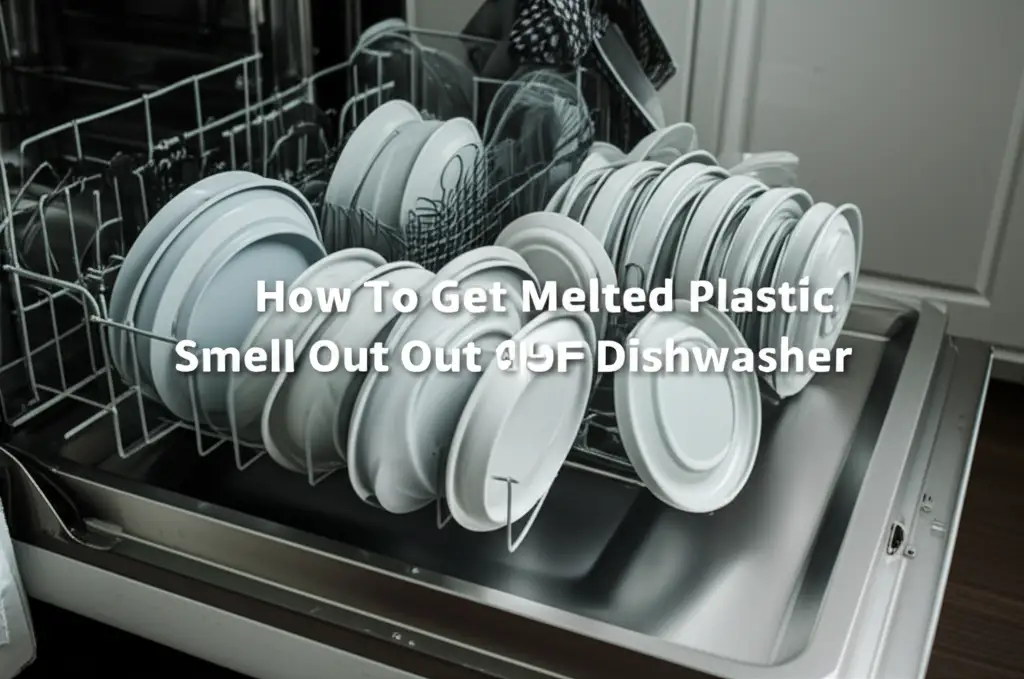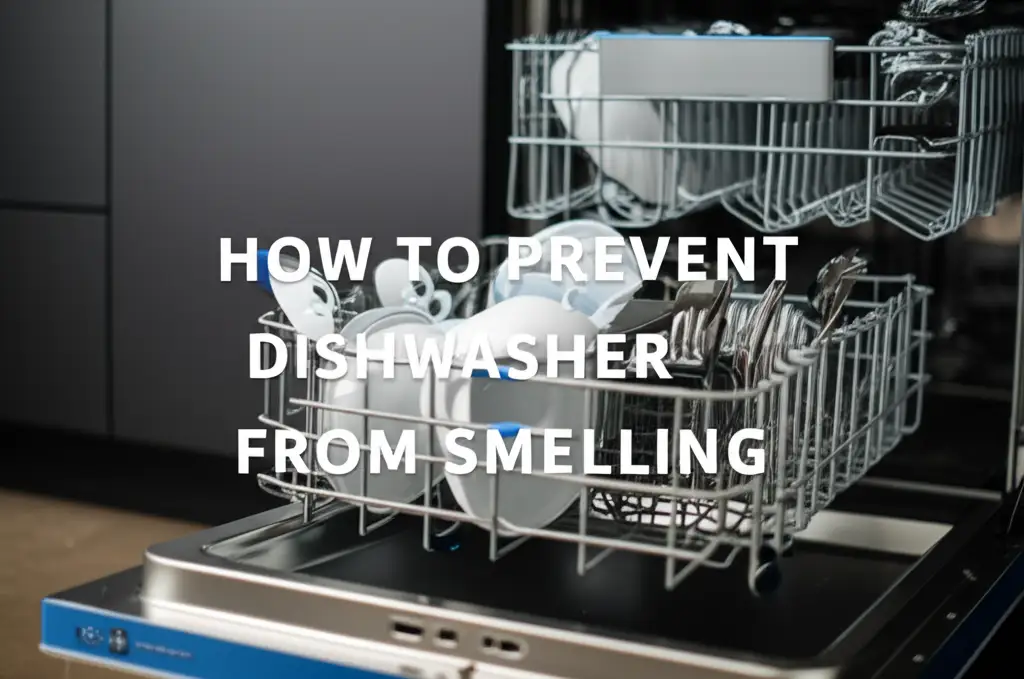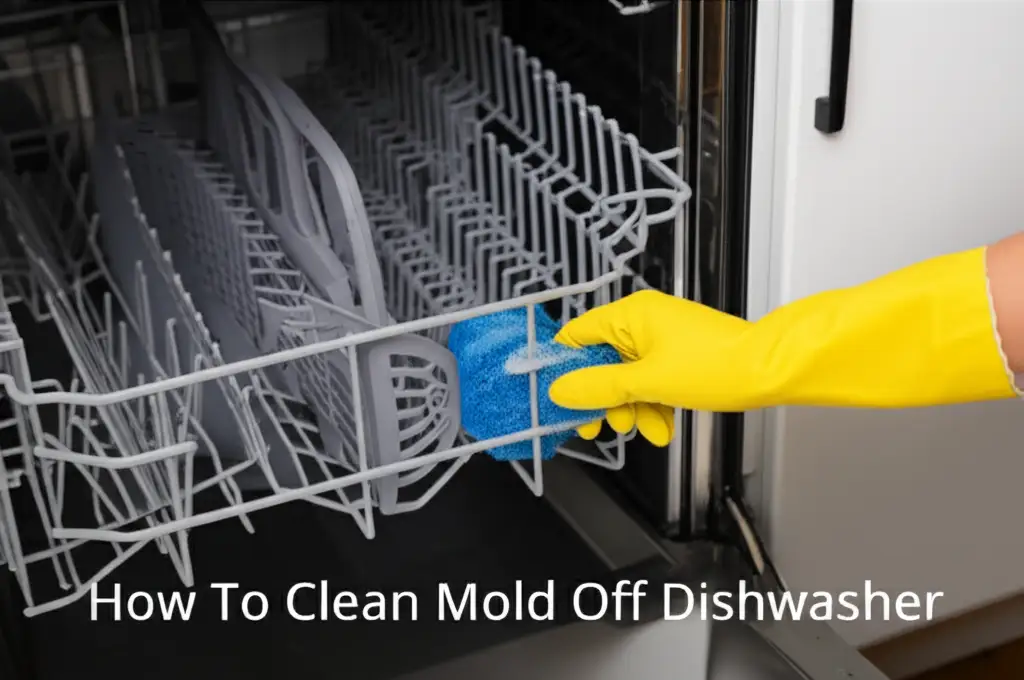· Elira Thomsen · Home Maintenance · 18 min read
How To Get Melted Plastic Smell Out Of Dishwasher

Eliminating Melted Plastic Smell from Your Dishwasher
Oh, that dreadful smell! It hits you as soon as you open your dishwasher door. That unmistakable odor of melted plastic can truly ruin your kitchen’s fresh air. We have all been there, accidentally placing a plastic container too close to the heating element. Suddenly, your efficient dish-cleaning machine turns into a source of unpleasant fumes.
Getting rid of this stubborn smell requires specific steps and a bit of persistence. You want your kitchen to smell clean, not like a melted toy. This article will guide you through a comprehensive process. We cover everything from removing the plastic residue to deep cleaning and odor neutralization. You will also learn how to prevent this issue from happening again.
Takeaway
- Identify and remove all melted plastic residue immediately.
- Deep clean the dishwasher interior, focusing on the filter, spray arms, and racks.
- Utilize natural odor neutralizers like vinegar, baking soda, and citrus.
- Address hidden areas such as the door seal and detergent dispenser.
- Ensure proper air circulation to dissipate lingering smells.
- Implement preventative measures for future loads.
Clear and Concise Answer: To get melted plastic smell out of a dishwasher, first remove all visible plastic and clean the affected area. Next, deep clean the interior components, including the filter and spray arms. Run cycles with white vinegar, baking soda, or commercial dishwasher cleaner to neutralize the stubborn odor effectively.
Immediate Steps to Remove Melted Plastic from Dishwasher
The first step to eliminate the melted plastic smell is to address the source. This means finding and removing any melted plastic residue. This task can be messy, but it is crucial for effective odor removal. You need to ensure your dishwasher is completely cool before you start. Do not attempt to scrape hot plastic.
Turn off the dishwasher’s power supply at the breaker for safety. This prevents accidental activation during your work. Examine the heating element carefully. This is often where plastic melts because it gets very hot. Look for any plastic drips or smears on the element itself or on the bottom of the tub.
Use a plastic scraper or a wooden utensil to gently pry off any solid pieces of melted plastic. Avoid metal tools, as they can scratch the dishwasher’s interior. If the plastic is still soft, you can try using a hairdryer on a low setting to warm it slightly. This makes removal easier, but be careful not to remelt it onto other surfaces. Scrape the plastic into a paper towel and dispose of it immediately. This initial removal is vital for your success.
Identifying the Melted Area
Pinpointing where the plastic melted is your first mission. The heating element, located at the bottom of the tub, is a common culprit. However, plastic can also melt onto the rack, the side walls, or even the spray arms. Visually inspect every surface. Run your hand carefully along the bottom and sides of the tub.
Pay close attention to any discoloration or sticky residue. Sometimes, the plastic is very thin and almost invisible. It might just look like a shiny smudge. A flashlight can help you spot these hard-to-see areas. Checking every corner ensures no plastic is left behind to continue emitting fumes.
Safe Removal of Plastic Residue
Once you locate the melted plastic, safety comes first. Wear gloves to protect your hands from sharp edges or lingering heat. If the plastic is completely hardened, a utility knife with a fresh blade can help gently chip away at it. Be extremely cautious not to damage the dishwasher tub or heating element. A gentle touch is key here.
For stubborn, thin smears, try rubbing alcohol on a cloth. It can dissolve some types of plastic residue. Always test a small, inconspicuous area first. Some people find success with non-abrasive cleaners like Goo Gone, but ensure it is safe for dishwasher interiors. After applying any cleaner, wipe the area thoroughly with a clean, damp cloth. You want no chemical residue left behind. This careful removal process sets the stage for a truly clean machine.
Deep Cleaning Your Dishwasher Components
Removing the visible plastic is only the beginning. The heat from the melting plastic can infuse its odor into various dishwasher components. A thorough deep cleaning is essential to remove these embedded smells. You need to clean more than just the immediate area of the melt. This step focuses on the parts that come into contact with water and odor particles.
Start by emptying your entire dishwasher. Remove the dish racks, silverware basket, and any other removable parts. This gives you full access to the interior. You will be surprised how much grime and food particles can accumulate. These particles can trap and hold onto odors. A clean machine is less likely to retain bad smells.
Pay special attention to areas where water circulates. This includes the spray arms and the filter. These parts distribute water and collect debris. A build-up here can worsen any existing odor problem. Cleaning these components thoroughly will improve your dishwasher’s performance and eliminate the plastic smell. A well-maintained dishwasher also works more efficiently.
Cleaning the Dishwasher Filter
The dishwasher filter is a prime spot for food debris and odor accumulation. It traps food particles, preventing them from recirculating. If you have a melted plastic incident, the filter likely absorbed some of the fumes. Most dishwashers have a removable filter, usually located at the bottom of the tub. Consult your appliance manual for specific instructions on how to remove it.
Once removed, rinse the filter under hot running water. Use an old toothbrush or a small scrub brush to remove any stuck-on food and grime. You might notice a greasy film; this is normal. For extra cleaning, you can soak the filter in a mixture of warm water and a few drops of dish soap. A clean filter ensures proper drainage and helps eliminate the why does my ge dishwasher smell issue in general, not just plastic odors. Remember to clean it regularly, as suggested in guides like how often should you clean your dishwasher filter.
Scrubbing Spray Arms and Racks
The spray arms have small holes that can become clogged with food particles. Melted plastic residue might also have settled on them. Carefully unscrew or unclip the spray arms from their mountings. Use a small wire or toothpick to clear any clogs in the spray holes. You want water to flow freely.
Wash the spray arms and dish racks with warm, soapy water. A sponge or brush can help scrub away any residue. For stubborn spots, a paste of baking soda and water can work wonders. Rinse everything thoroughly. Ensure no soap residue remains before reattaching them. Clean racks also promote better water circulation and cleaning results.
Neutralizing Odors with Natural Remedies
After physically removing the plastic and cleaning components, you still might detect a faint smell. This is where odor neutralization comes in. Natural remedies are safe, effective, and readily available. They work by absorbing or breaking down odor molecules rather than just masking them. You want to eliminate the smell, not cover it up.
These methods are also environmentally friendly. You avoid harsh chemicals that could irritate your skin or respiratory system. Plus, they are very cost-effective. You likely already have these items in your pantry. Using natural solutions is a gentle way to refresh your dishwasher. This approach ensures your kitchen remains a pleasant space.
Persistence is key when dealing with stubborn odors. You might need to repeat these steps several times. The goal is to completely banish the lingering plastic smell. A fresh, clean dishwasher makes doing dishes a much more enjoyable task.
White Vinegar Rinse Cycles
White vinegar is a powerful natural deodorizer and cleaner. Its acidic nature helps break down grease and odor-causing residues. It is also safe for most dishwasher components. Pour one to two cups of white vinegar into a dishwasher-safe bowl. Place the bowl on the top rack of your empty dishwasher.
Run a hot water cycle without any detergent. The steam from the hot water will help distribute the vinegar throughout the machine. The vinegar will absorb odors and clean the interior. You can also pour vinegar directly into the bottom of the dishwasher or in the detergent dispenser. For more general cleaning advice, consider guides on where to put vinegar in dishwasher to clean. This process should significantly reduce the plastic smell.
Baking Soda Absorption
Baking soda is another excellent natural odor absorber. It neutralizes odors by bringing acidic and basic odor molecules to a more neutral state. After running a vinegar cycle, sprinkle one cup of baking soda across the bottom of the empty dishwasher tub. Leave it overnight.
This allows the baking soda to absorb any remaining odors. In the morning, run a short, hot rinse cycle. The baking soda will wash away, taking the odors with it. You can also mix baking soda with a little water to form a paste. Apply this paste to stubborn spots on the dishwasher walls. Let it sit for a few hours before wiping it clean.
Citrus Peels for Freshness
Citrus fruits are known for their fresh, clean scents. Their peels contain natural oils that can help neutralize odors and leave a pleasant aroma. Collect the peels from lemons, oranges, or grapefruits. Place them in the silverware basket or a small mesh bag.
Run a short, hot rinse cycle with the citrus peels inside. The heat and steam will release the citrus oils, which will help mask and absorb lingering plastic smells. This method adds a refreshing scent to your dishwasher. It is a nice final touch after the more intensive cleaning steps.
Addressing Hidden Areas and Odor Traps
Even after cleaning the main components and running odor-neutralizing cycles, some smells might persist. This is often because odors get trapped in less obvious areas. These hidden spots can harbor residue and perpetuate the unpleasant smell. You must pay attention to every crack and crevice. Overlooking these areas means the smell will likely return.
Dishwasher designs include many seals, gaskets, and small compartments. These are necessary for the machine’s function but can become odor traps. Food particles, grime, and even tiny plastic fragments can settle in these hidden spots. They then decompose or off-gas, keeping the bad smell alive. A truly comprehensive clean targets these often-missed locations.
Taking the time to clean these specific areas can make a significant difference. It is the final step in ensuring your dishwasher smells completely fresh. This thoroughness is what will prevent the melted plastic smell from returning to haunt your kitchen.
Cleaning the Door Seal and Gaskets
The rubber door seal, or gasket, around the dishwasher opening is a common spot for grime and mold. It can also trap melted plastic fumes. Open the dishwasher door wide. Carefully inspect the entire length of the gasket. You might see black mold, food particles, or sticky residue.
Use a damp cloth dipped in a solution of warm, soapy water or white vinegar to wipe down the gasket. Pay close attention to the folds and creases where debris can hide. A toothbrush can help scrub stubborn areas. Rinse the gasket thoroughly with a clean, damp cloth. A clean seal is vital for both odor control and proper sealing.
Inspecting the Detergent Dispenser
The detergent dispenser can sometimes hold onto old detergent residue or even melted plastic particles. This is especially true if plastic dripped into it. Open the dispenser flap and inspect the inside. Look for any sticky film or lingering plastic.
Use a small brush or a cotton swab to clean the inside of the dispenser. You can use a mixture of warm water and dish soap. Rinse it out thoroughly with clean water. Ensure the dispenser opens and closes smoothly. A clean dispenser helps your dishwasher distribute detergent effectively. This also ensures your dishes get clean and fresh.
Utilizing Commercial Dishwasher Cleaners
Sometimes, natural remedies are not enough for very persistent odors. Or perhaps you prefer a quicker, more potent solution. Commercial dishwasher cleaners are designed to tackle tough stains, hard water buildup, and stubborn odors. They contain powerful detergents and enzymes that break down residues. These cleaners are formulated to refresh your entire dishwasher system.
Many brands offer specialized dishwasher cleaners. These come in various forms, such as tablets, liquids, or powders. They are generally easy to use. You simply place them in the empty dishwasher and run a cycle. They work to deep clean components you might not be able to reach by hand.
When choosing a commercial cleaner, read the labels carefully. Ensure it is safe for your dishwasher model. Always follow the manufacturer’s instructions for best results. Using a commercial cleaner can be a powerful final step in eradicating that lingering melted plastic smell. For general knowledge, it is good to know can you use dishwasher liquid in dishwasher and how that differs from specific dishwasher cleaners.
Choosing the Right Product
Commercial dishwasher cleaners vary in their active ingredients. Some focus on descaling, using acids to remove mineral buildup. Others contain powerful enzymes to break down food grease and residue. For melted plastic smells, look for cleaners that specifically mention odor elimination or deep cleaning. Many products come in single-use packets.
Popular brands like Affresh, Finish, and Cascade offer effective dishwasher cleaning solutions. Read customer reviews to find products highly rated for odor removal. Avoid abrasive cleaners or strong bleach solutions. These can damage your dishwasher’s internal components. A product specifically designed for dishwashers is always the safest bet.
Running a Cleaning Cycle
Once you have chosen your commercial cleaner, follow its instructions precisely. Most cleaners require you to place the product in the empty dishwasher. You then run a hot wash cycle. Do not add any dishes or regular detergent during this cycle. The cleaner needs to work on its own.
The hot water activates the cleaning agents. They circulate throughout the dishwasher, reaching all internal parts. This includes the pump, hoses, and spray arms. The cleaning solution breaks down grease, grime, and odor-causing particles. After the cycle finishes, open the dishwasher door to let it air out. You should notice a significant improvement in the smell. You might need to repeat this process if the smell is extremely strong. For comprehensive instructions on using these products, review guides like how to use dishwasher cleaner.
Ensuring Proper Air Circulation and Ventilation
After all the cleaning steps, air circulation plays a crucial role in completely dissipating the melted plastic smell. Stagnant air inside the dishwasher can trap odors. It prevents them from escaping. You want fresh air to flow through the unit. This helps to carry away any remaining odor molecules.
Good ventilation is important not just for initial odor removal. It also helps prevent future musty smells. Your kitchen itself benefits from proper air movement. A well-ventilated space helps keep airborne odors from settling. This step is simple but highly effective in the overall odor elimination process.
It ensures that your efforts in cleaning and neutralizing are not wasted. Allowing the dishwasher to air out completely promotes a truly fresh interior. It makes sure no trace of the plastic smell lingers.
Airing Out the Dishwasher
Once your cleaning cycles are complete, open the dishwasher door wide. Leave it open for several hours, or even overnight. This allows fresh air to circulate inside the tub. It helps dry out any remaining moisture. Moisture can contribute to musty smells and even mold growth.
If possible, open a nearby window or turn on your kitchen exhaust fan. This creates a cross-breeze. It helps pull the stale, odor-filled air out of the kitchen. Airing out is a passive but powerful way to ensure complete odor dissipation. It is a necessary step to confirm the smell is truly gone.
Using Activated Charcoal or Coffee Grounds
For stubborn lingering smells, activated charcoal or fresh coffee grounds can act as additional odor absorbers. These materials have porous structures. They can trap odor molecules from the air. This makes them effective at “pulling” smells out of enclosed spaces.
Place a small bowl of activated charcoal briquettes or fresh coffee grounds inside the empty dishwasher. Close the door and let them sit for 24-48 hours. Do not use activated charcoal meant for grilling. It contains harmful chemicals. Use only food-grade or aquarium-grade activated charcoal. After this period, remove the bowl and run a quick rinse cycle to clear any dust.
Preventing Future Melted Plastic Incidents
Once you have successfully removed the melted plastic smell, you want to avoid a repeat performance. Prevention is always better than cure. Understanding why plastic melts in the dishwasher helps you avoid the problem entirely. Most incidents happen due to incorrect loading or using non-dishwasher-safe items.
Being mindful of what goes into your dishwasher saves you time and effort later. It also protects your appliance from potential damage. Proper loading techniques are essential. Knowing which plastics are safe for heat exposure is equally important. A few simple habits can keep your dishwasher running smoothly and smelling fresh.
This section provides practical tips. These tips will help you safeguard your dishwasher and your plastic items. You want a kitchen that smells clean, not burnt. Following these guidelines ensures a worry-free dishwashing experience every time.
Checking Dishwasher Safe Labels
Not all plastics are created equal when it comes to heat. Look for the “dishwasher safe” symbol on your plastic containers and utensils. This symbol usually looks like a square with water droplets or dishes, often with a temperature indicator. If an item lacks this symbol, assume it is not dishwasher safe. Hand wash it instead.
Even “dishwasher safe” plastics can warp if placed in the wrong spot. Most dishwasher-safe plastics are designed for the top rack only. The heating element is typically at the bottom of the dishwasher. The top rack gets less direct heat. Always place plastic items on the top rack. This simple precaution reduces the risk of melting significantly.
Proper Loading Techniques
Loading your dishwasher correctly is key to preventing melted plastic. Never place plastic items near the heating element. This element, usually a visible coil at the bottom of the tub, reaches very high temperatures during the drying cycle. Placing any plastic near it is an open invitation for melting.
Ensure plastic items are secure. Lightweight plastic containers can flip over during the wash cycle. If they fall onto the heating element, they will melt. Use the racks to hold items firmly in place. You want items to be stable and not prone to shifting. Distribute items evenly to allow proper water and heat circulation. This also helps in achieving a thorough clean for all your dishes.
Frequently Asked Questions
How long does melted plastic smell last in a dishwasher?
The melted plastic smell can linger for several days to weeks if untreated. It depends on the amount of plastic melted and how quickly you act. Immediate cleaning and multiple odor neutralization cycles significantly reduce the duration. Air circulation also plays a major role in how quickly the smell dissipates.
Is melted plastic smell from a dishwasher harmful?
Inhaling melted plastic fumes can be irritating to the eyes, nose, and throat. It can cause headaches or nausea in some individuals. While typically not severely toxic in small amounts from household incidents, prolonged exposure is not recommended. Ensure good ventilation while cleaning.
Can I use bleach to remove melted plastic smell from my dishwasher?
Avoid using bleach in your dishwasher. Bleach can damage stainless steel components and rubber seals. It can also react dangerously with other cleaning agents or food residues. Stick to safer, proven methods like vinegar, baking soda, or commercial dishwasher cleaners.
What types of plastic are safe to put in a dishwasher?
Look for plastics with the “dishwasher safe” symbol. This usually means they are made from high-density polyethylene (HDPE), polypropylene (PP), or certain types of polycarbonate. Always place these items on the top rack, furthest from the heating element.
Does melted plastic damage a dishwasher permanently?
Minor melted plastic incidents usually do not cause permanent damage to the dishwasher itself. The main issues are the smell and the residue. However, large amounts of melted plastic could potentially block spray arms or damage the heating element if not removed carefully.
Should I call a professional if the smell persists?
If you have followed all cleaning steps and the melted plastic smell still persists after a few weeks, consider calling a professional appliance technician. There might be hidden residue in hard-to-reach areas, or a component might be subtly damaged, requiring expert attention.
Conclusion
Dealing with a melted plastic smell in your dishwasher can be frustrating. It certainly disrupts the fresh ambiance of your kitchen. However, with the right approach, you can effectively get melted plastic smell out of your dishwasher. The process involves careful removal of residue, thorough cleaning of all components, and powerful odor neutralization techniques. From scrubbing the filter to running cycles with vinegar and baking soda, each step contributes to restoring your appliance.
Remember the importance of addressing hidden areas like door seals. Do not forget to air out your dishwasher completely afterward. Prevention is equally crucial for avoiding future incidents. Always check for “dishwasher safe” labels and load your machine correctly. By following these guidelines, you ensure your dishwasher remains a workhorse for clean dishes, free from any lingering, unpleasant odors. Your kitchen will smell fresh and clean once more. Keep your dishwasher well-maintained and load it smartly for a worry-free experience.
- dishwasher smell removal
- plastic odor in dishwasher
- clean dishwasher
- burnt plastic smell
- kitchen cleaning





